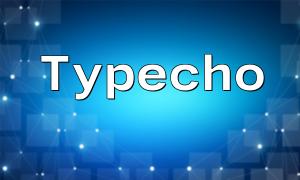PHP is a widely-used server-side programming language that has seen continuous updates to improve performance and security. In website and application development, it’s common to need an upgrade from PHP5.6 to a newer version, such as PHP7.4. However, during this upgrade process, you may encounter compatibility issues. This article will provide a detailed guide on how to handle common compatibility errors when upgrading from PHP5.6 to PHP7.4.
In PHP7.4, function names can no longer be constants or expressions. If you have code similar to the following in PHP5.6:
$functionName = 'myFunction';
$functionName();
You will need to modify it to:
$functionName = 'myFunction';
$functionName();
In PHP7.4, if a method has the same name as the class, it will no longer be considered a constructor. If you have code like the following in PHP5.6:
class MyClass {
function MyClass() {
// Constructor code
}
}
You should modify it to:
class MyClass {
function __construct() {
// Constructor code
}
}
In PHP7.4, calling non-static methods statically is no longer allowed. If you are using code like the following in PHP5.6:
class MyClass {
function myMethod() {
// Method code
}
}
MyClass::myMethod();
You should change it to:
class MyClass {
static function myMethod() {
// Method code
}
}
MyClass::myMethod();
In PHP7.4, string offsets will be interpreted as integers rather than strings. If you have code like the following in PHP5.6:
$string = 'Hello';
echo $string[0];
You will need to change it to:
$string = 'Hello';
echo $string{0};
In PHP7.4, the `each()` function has been deprecated, and you will need to use an alternative method. If you have code like this in PHP5.6:
$array = array('key1' => 'value1', 'key2' => 'value2');
while ($item = each($array)) {
// Process each array element
}
You should update it to:
$array = array('key1' => 'value1', 'key2' => 'value2');
foreach ($array as $key => $value) {
// Process each array element
}
In addition to the examples mentioned above, there may be other compatibility errors that arise. During the upgrade process, it is recommended to use PHP’s official tools, such as PHP CodeSniffer, to detect and fix potential issues. You should also consult PHP’s official documentation and community suggestions to learn about other potential compatibility problems and solutions.
When upgrading from PHP5.6 to PHP7.4, you may encounter some compatibility issues. By making the necessary code adjustments, you can successfully complete the upgrade and take full advantage of the performance improvements and security enhancements offered by PHP7.4. We hope the examples and recommendations provided in this article help you resolve common compatibility issues during the upgrade process and ensure a smooth transition to the new version.









